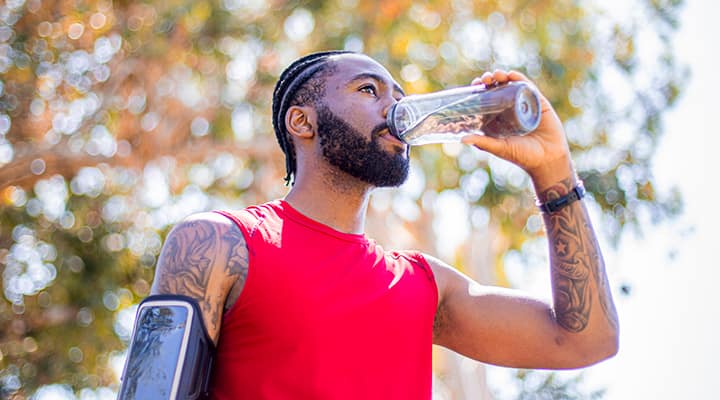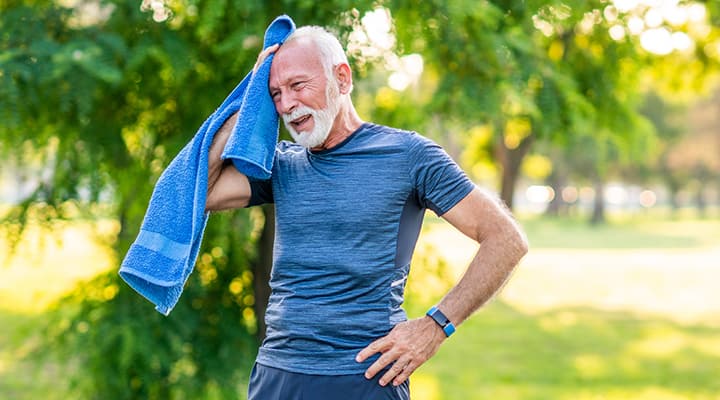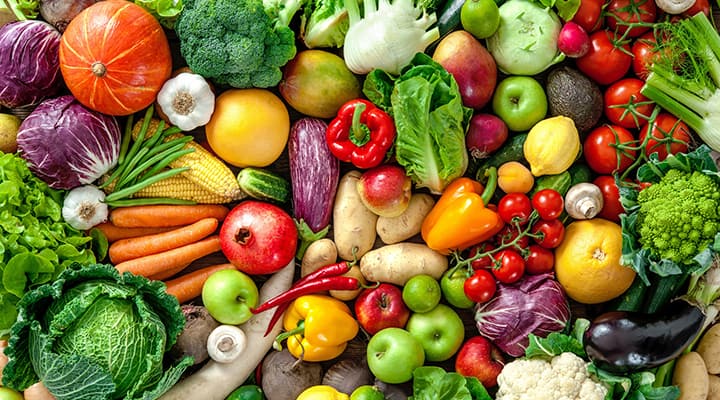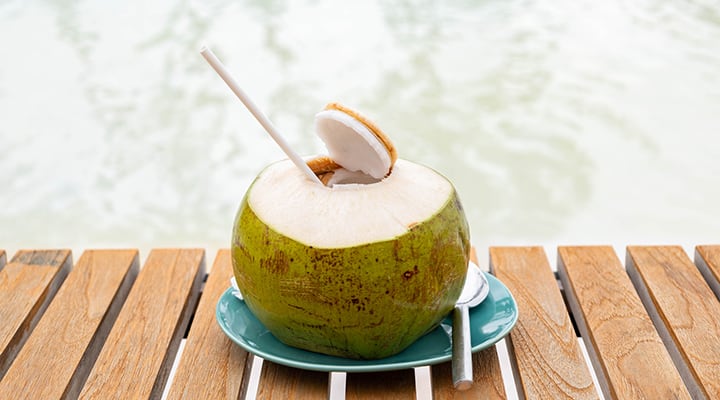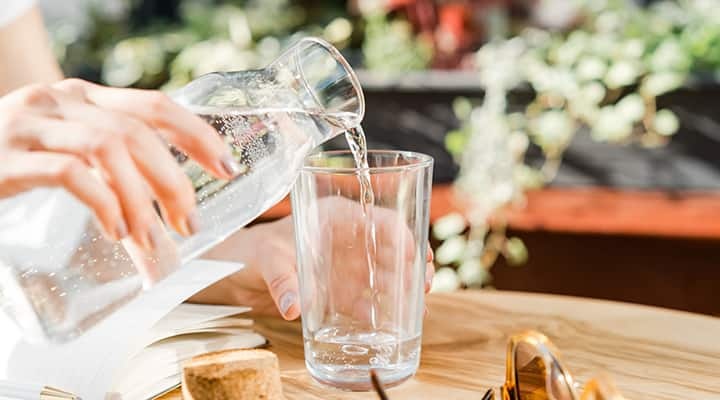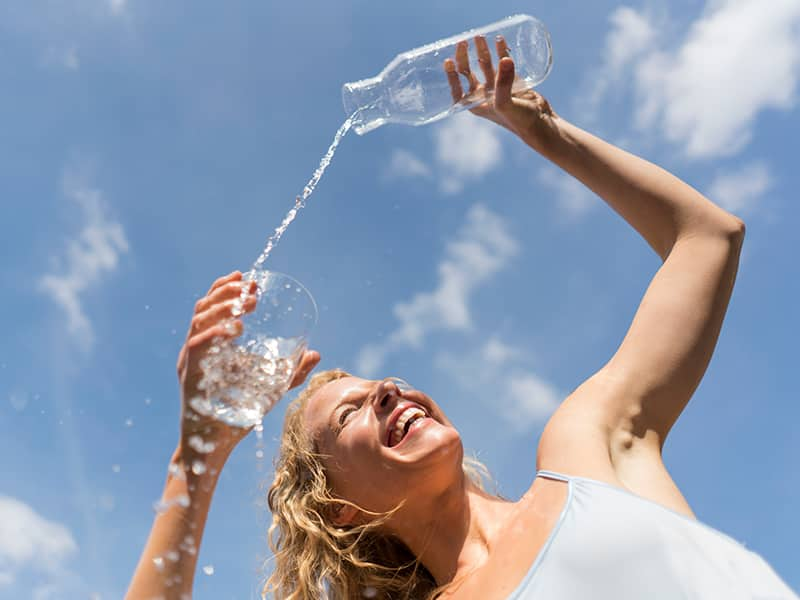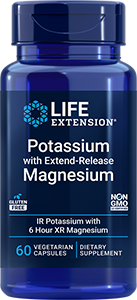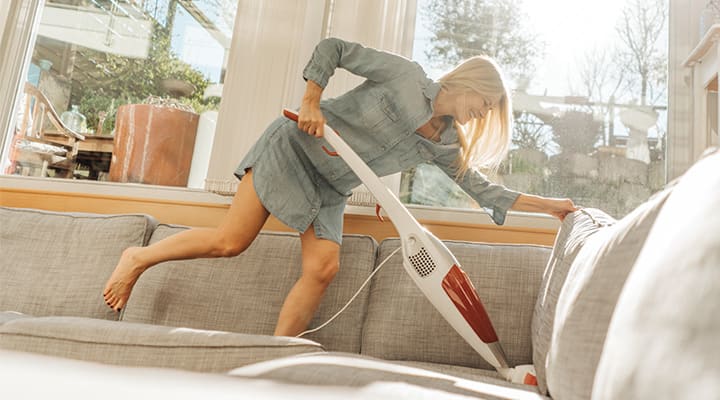
How to Replenish Electrolytes: Best Sources
Published: July 2023
Anyone who regularly plays sports or follows a consistent exercise routine knows a little bit about electrolytes. You might have the basic facts down—you need electrolytes when you sweat a lot, and you can get electrolytes from sports drinks, like Gatorade. You might even have a deeper understanding of how hydration status influences electrolyte levels. (Hint: Dehydration can lead to low electrolytes.) But what you may not know is that electrolytes are involved in hundreds of vital activities—not just exercise.
Curious what else they do? Find out everything you need to know about electrolytes, including what they do, how much you need and the best sources available to keep your levels balanced and your body healthy!
What are electrolytes?
The prefix "electro" in "electrolyte" is a clue here! Electrolytes are substances that have a positive (+) or negative (-) electric charge when dissolved in liquid (blood or water). Electrolytes are found in nearly every cell and fluid in the human body and are necessary for several processes—we are 60% water after all! You may be familiar with some electrolytes already, but there are seven significant electrolytes that influence the body:
Sodium (+)
Sodium is the most abundant electrolyte in the human body and is primarily responsible for maintaining extracellular fluid volume. Sodium also supports muscle and nerve cell function by regulating cells' membrane potential.
Potassium (+)
Potassium and sodium work in tandem. When potassium enters a cell, sodium leaves—a process facilitated by the sodium-potassium pump. Normal potassium levels support nerve and muscle function and are largely connected to heart health.
Magnesium (+)
Magnesium is involved in more than 300 biochemical reactions throughout the body, including protein synthesis, muscle cell function and neurotransmitter release. Sufficient magnesium is even required for muscle contraction, which also influences a regular heartbeat.
Calcium (+)
Calcium is known for maintaining strong, healthy bones, but it is also an essential mineral for muscle contraction, nerve impulses and blood vessel function. Calcium helps blood vessels expand and contract, which can significantly influence healthy blood pressure levels. Calcium is also involved in the secretion of various hormones, which can impact all areas of the body.
Chloride (-)
Chloride is formed from the halogen element chlorine. The main dietary source of chloride is in the form of sodium chloride. Chloride is the second-most abundant ion in the human body, and its main functions are to maintain fluid balance and blood pH. It even stimulates stomach acid to facilitate digestion.
Phosphorus (-)
85% of the body's phosphorus resides in bones and teeth, indicating just how important it is for your skeletal system. Phosphorus also helps with cellular metabolism and is involved in the formation of nucleotides, the building blocks of DNA.
Bicarbonate (-)
When you breathe, you exhale carbon dioxide. However, some of the carbon dioxide generated from breathing gets reused to help maintain blood pH. This carbon dioxide is used to make bicarbonate. Bicarbonate is considered a base, which means it contributes to higher blood pH values. Bicarbonate levels themselves are tightly regulated by the kidneys, and are an important part of maintaining a healthy balance.
Why is it important to replenish electrolytes?
You've now seen how electrolytes are important players in several normal bodily functions, including muscle contraction, nerve function, healthy blood pressure, regulating blood pH, fluid balance, and growth and development.
But, without the right mix and right quantity of electrolytes, any one of these functions can go haywire. Depending on the severity of electrolyte imbalance, you may develop a temporary health concern or a serious long-term issue. For instance, low magnesium levels can adversely affect your heart rate. On the other hand, a calcium concentration that's too high can lead to kidney dysfunction.
There are numerous ways electrolytes can affect your health, but the upside is that healthy lifestyle habits and a nutritious diet can prevent a serious electrolyte imbalance altogether.
When should you replenish electrolytes?
Here's the bad news: Following a healthy diet and lifestyle does not make you immune to electrolyte imbalance. You lose electrolytes when you lose body fluids, which is exactly how you end up dehydrated. Sometimes, dehydration can sneak up on you or occur unexpectedly. If you find yourself in one of the following scenarios, you need to replenish lost electrolytes ASAP!
When you sweat a lot
Excessive sweating is an easy way to lose electrolytes. While you may think this is only a concern during a high-intensity workout, you don't have to be exercising to sweat and lose electrolytes. Sunbathing on a hot summer day can cause you to sweat out those essential minerals.
When you feel ill
Getting sick is never fun, but it can be especially draining if you have a fever, diarrhea or experience repeated vomiting. If these symptoms don't subside quickly, you can lose a lot of electrolytes and become dehydrated. Children and senior adults are more sensitive to fluid loss, but being sick with these symptoms puts anyone at a higher risk of dehydration.
When you drink too much alcohol
There's a reason people feverishly search for hangover remedies after a late night out. Too much alcohol can leave you feeling sluggish and achy all over. This is partially because you're dehydrated. Alcohol is a diuretic, which means it suppresses the hormone that tells your body to retain water and electrolytes. When this hormone is suppressed, you end up going to the bathroom more frequently and losing fluids through urination.
When you take certain medications
Some medications are designed to be diuretics, which are important drugs for several conditions. Unfortunately, they come at a cost to your electrolyte reserve. Laxatives have a similar effect, because they induce bowel movements, where fluid may be lost. Antibiotics, steroids and chemotherapy drugs can also influence electrolyte levels. Be sure to speak with your doctor about these and any other potential side effects.
When your kidneys aren't functioning properly
The kidneys help maintain electrolyte balance by excreting excess minerals through urine. Any dysfunction within the kidneys will impact this regulating system and can cause an imbalance in electrolyte levels.
When you don't eat or drink enough
Foods and beverages are the primary source of electrolytes. When you aren't eating enough for any reason—be it a calorie-restricted diet, appetite changes or otherwise—you deprive your body of what it needs. While this isn't a matter of losing electrolytes through body fluids, it is a sure-fire way to create an electrolyte deficiency.
When you drink too much water
While hydration is important, it's also important that you avoid overhydration. Drinking too much water can overload the kidneys to the point that they cannot get rid of the excess fluids fast enough. This dilutes your body's electrolytes and can lead to water toxicity and hyponatremia, a condition characterized by extremely low levels of sodium that can sometimes be fatal.
Best sources of electrolytes
If you go into a store, the aisles are lined with options for electrolyte replenishment: coconut water, pickle juice, chocolate milk, Gatorade…the list goes on! While all of these may support a healthy body one way or another, what is really the best source of electrolytes?
Whole foods
Hands down the best source of electrolytes are whole foods. We mean fruits, vegetables, whole grains, dairy products and minimally processed protein—all of which are pure, dietary sources of electrolytes and also happen to be the five food groups! How much of each food group you need daily and at each meal varies with each person.
That being said, some foods are more electrolyte-rich than others or offer more of a specific electrolyte. For example, bananas are potassium-rich, while yogurt is a good source of calcium. Depending on your body's electrolyte needs, you may choose certain whole foods over others.
Milk
Like all dairy products, milk is a great source of calcium. More than that, milk provides potassium, sodium and magnesium, while effectively rehydrating the body with adequate fluids. You've probably heard chocolate milk is one of the best post-workout drinks. Milk's effectiveness is partially due to its electrolyte content but is also thanks to high-quality protein that helps repair and rebuild muscles. When you choose milk after a tough workout, you're getting an all-in-one recovery drink.
Fruit juices and smoothies
Fruit juices and smoothies can be a convenient alternative to whole fruits and vegetables. By pulverizing your favorite produce in a blender, you instantly have a to-go cup of electrolytes (among other nutrients). However, these drinks must be made with whole fruits and vegetables in order to offer the same benefits.
If you grab a juice bottle from the store that doesn't say "100% fruit juice" on the label, put it back on the shelf. Also be skeptical of juices made from concentrate. Fruit concentrate is made by removing water from the original fruit, a process that also removes fiber and destroys vitamin C content. You may still get some electrolytes, but it's at the expense of other key nutrients.
Coconut water
Coconut water may get a lot of hype, but it's not all for nothing. Natural coconut water provides high amounts of potassium and sodium. It also features natural carbohydrates (including sugar) that help speed up the absorption of electrolytes.
Pro tip: Not all coconut water is created equally. Be discerning when choosing brands. The less processed, the better.
Sports drinks
Sports drinks are made with a combination of water, carbohydrates and electrolytes. The type of carbohydrate found in sports drinks is usually sugar, which comes in many forms. You might see sugar listed as glucose, sucrose, high-fructose corn syrup or various other names. The purpose of this added sugar is to increase the rate of absorption, so your body becomes hydrated faster.
Experts agree that sports drinks are appropriate for athletes engaging in moderate- to high-intensity exercise for more than one hour. However, beware of regular consumption. The added sugar in sports drinks can contribute to health problems, such as type 2 diabetes, cardiovascular disease and dental caries. Your best option may be to choose a low-sugar or sugar-free sports drink.
Electrolyte drinks
Electrolyte-enhanced drinks rapidly replenish electrolyte levels due to a strategic mix of sodium, potassium and chloride. An electrolyte beverage offers a more concentrated source of electrolytes than what sports drinks can offer. For instance, Pedialyte offers 2-3 times more electrolytes than the average sports drink and features one-fourth to one-half the amount of sugar.
Even though they may not have as much sugar, there is a time and place for consuming electrolyte drinks. These liquid solutions are best suited when you're truly dehydrated. A stomach bug that induces prolonged vomiting and diarrhea is certainly grounds for an electrolyte drink. And, any time you go through a tough sweat session, it might call for an electrolyte drink to help with muscle recovery.
Electrolyte tablets
Just like electrolyte drinks, there are tablets specially designed to supply a certain mix of electrolytes to the body to support athletic performance and well-being. For active individuals, particularly endurance athletes, these may be more convenient to take than an electrolyte drink. They're compact and travel well, which is beneficial for those destination races.
How long does it take to replenish electrolytes?
Ideally, you want electrolytes to be a revolving door; they go in and out of the body at an equal rate. This way you aren't playing the catch-up game. Is this always realistic, though? No, but don't get too worried. Depending on the quantity of electrolytes you need to replenish, you may notice improvements within 24 hours.
Even athletes who have completed vigorous exercise and experienced substantial electrolyte deficiency can restore hydration within a day through normal eating and drinking habits. However, if fluids need to be restored sooner than 24 hours, researchers suggest following a more aggressive hydration protocol. This means consuming more overall fluids in addition to consuming electrolytes through food, electrolyte tablets or other electrolyte-enhanced sources.
Better yet, combining electrolytes with carbohydrates can help your body rebound even faster. A randomized controlled trial showed that recreational athletes with mild hypohydration can restore normal hydration within 45 minutes by consuming 600 mL (about 20 oz.) of either water or a combination solution with salt, carbohydrates and electrolytes. If 20 ounces of plain water isn't your cup of tea, a sports drink can quickly ramp up your electrolytes.
How to know if you're getting enough electrolytes
If your body needs more electrolytes, it will most likely tell you. Listen to the physical signs and symptoms it's communicating to you. Common symptoms associated with electrolyte imbalance include headache, fatigue, muscle discomfort and irregular bowel movements.
Of course, these symptoms can be linked to a number of other health concerns, which is why it's important to seek advice from a medical professional. You can get a more accurate assessment of your electrolyte levels with a simple blood test. Based on the lab results, your doctor will make recommendations for maintaining—or replenishing—electrolytes.
Remember, the best way to ensure you're getting enough electrolytes is to eat a well-balanced diet and drink adequate fluids.
References
- Ellis, E. "Hydrate Right." Academy of Nutrition and Dietetics. May 2023. https://www.eatright.org/fitness/physical-activity/exercise-nutrition/hydrate-right
- Logan-Sprenger, HM, et al. "The acute effects of fluid intake on urine specific gravity and fluid retention in a mildly dehydrated state. J Strength Cond Res. April 2013. https://pubmed.ncbi.nlm.nih.gov/22692114/
- Shirreffs, SM, et al. "Fluid and electrolyte needs for training, competition, and recovery." J Sports Sci. 2011. https://pubmed.ncbi.nlm.nih.gov/22150427/
- Shrimanker I, et al. "Electrolytes." StatPearls. April 2023. https://www.ncbi.nlm.nih.gov/books/NBK541123/
- "Learn how to eat healthy with MyPlate." U.S. Department of Agriculture. https://www.myplate.gov/
- "Sports Drinks." Harvard School of Public Health. https://www.hsph.harvard.edu/nutritionsource/sports-drinks/
- "Why Pedialyte?" Abbott Nutrition. https://www.pedialyte.com/why-pedialyte
Always be in the know!
Access the latest deals, wellness news, expert health tips & more!

